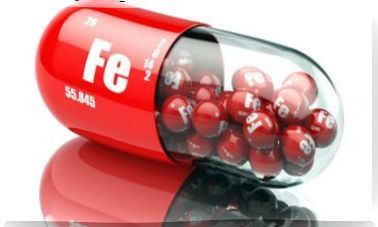Hydration Is Essential For Your Brain
Most of the human body is made up of water. Therefore, all organs need water to function properly. Thus, you must be clear that hydration is essential for your brain.
We all have physiological mechanisms to eliminate excess water, if applicable, and thus maintain the body’s water balance. For this reason, there is no known maximum recommended intake for water.
This is not to say that there are no consequences to taking it too much; however, the recommended amount per person may vary depending on their weight, age, health status and level of physical activity, among others.
Dehydration and physical activity
During intense exercise, the loss of body water can even lead to:
- Severe disturbance of thermoregulation
- Increased breathing rate during exercise
- Tingling and numbness of extremities
- Collapse, especially if the physical exercise is carried out in extreme heat conditions
All the organs of the human body need water, hydration is essential for your brain as well. For this reason, as detailed in a study published in 2011 in the journal Nutrition Reviews , even mild levels of dehydration can produce alterations in mood and cognitive functioning.

The brain and hydration: hydration is essential for your brain
According to research published in the International Journal of Environmental Research and Public Health , hydration is essential for the brain, since water represents 75% of the brain mass. Among other things, water is involved in electrolyte balance and metabolism.
Therefore, it is essential that all people try to maintain the balance of water inlet and outlet. When fluids lost through sweat, urine, and other mechanisms are not replaced, several consequences can occur.
Among these, cognitive performance is one of the most affected. According to this same research, functions such as:
- Short term memory
- Surveillance care
- The choice reaction
- Working memory
In turn, dehydration causes variations in the distribution of body water, which could cause low pressure in the brain that is associated with confusion, dementia and lethargy.
Studies such as the one carried out by Nathalie Pross are not yet conclusive on the mechanisms that occur specifically in the brain under dehydration conditions, but it is indicated that the processes of attention and memory are affected first.
Dehydration can also affect your mood, you may feel tired or irritable. You may even think you are hungry, when in reality your body is asking for water.
Adequate hydration is important for proper brain function. When we are adequately hydrated, brain cells receive oxygenated blood and the brain remains alert. In this way, it manages to carry out its functions without difficulties.

How to recognize the signs of dehydration?
At first, it is difficult to recognize that decreased cognitive performance is related to dehydration. Therefore, you have to be attentive to other signs such as:
- Excessive thirst
- Cold and dry skin
- Muscular fatigue
- Dry mouth
- Lethargy and irritability
- Decreased urination and lack of desire
- Low blood pressure, headaches, and dizziness
If these symptoms occur, it is important to check if there is an adequate intake of fluids and mineral salts. If not, it is an aspect that needs to be reinforced. Also, if there are signs of severe dehydration, seek immediate medical attention.
Adequate hydration is essential for the brain and its respective functions. When you have a low fluid intake, problems associated with cognitive performance can occur. Therefore, it is important to consume water and drinks that provide electrolytes.









